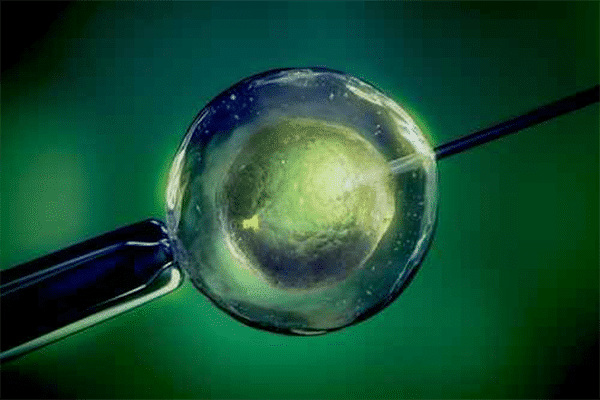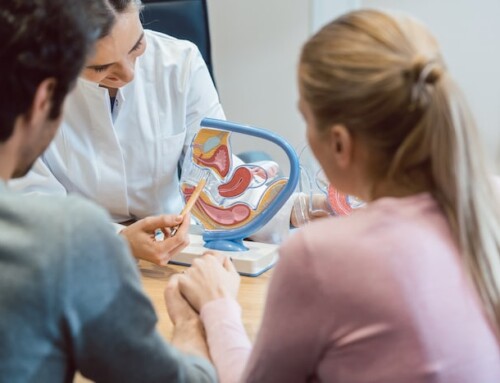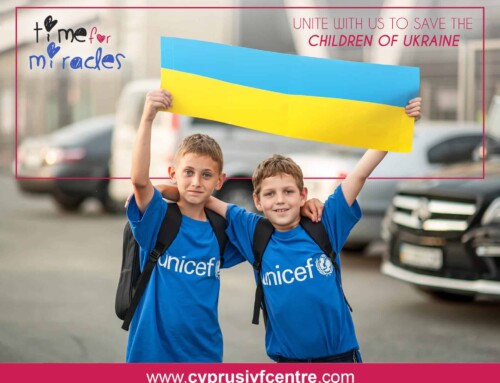In 1978 Louise Brown, the world’s very first IVF baby was born. Since then hundreds of thousands of babies have been born as a result of the fertility treatment. IVF is a complicated procedure and at the Cyprus IVF Centre our highly skilled team led by our doctors are experienced in every single aspect of reproductive medicine. Most patients at the Centre have a general understanding of the IVF process – but what is it that actually happens to make your baby? This is a look at straightforward IVF, there are other supplementary treatments to support conception if necessary.
The beginning
The basic steps of IVF are:
- Egg retrieval
- Fertilisation in the laboratory
- Embryo transfer to the uterus
However, surrounding these steps are a number of procedures that help us treat the individual patient to the best of our ability.
Before we start treatment, there will be some general testing that will show us the level of the ‘ovarian reserve’. This is particularly important because the number of eggs retrieved appears to have a direct correlation to the success of the IVF process. There are three main ways of testing the ovarian reserve:
a) Day 3 analysis of FSH (follicle stimulating hormone). FSH is the main hormone responsible for producing mature eggs in the ovaries and it’s produced by the pituitary gland at the base of the brain.
b) AMH (anti-mullerian hormone) blood test carried out. This is thought to show the size of the remaining egg supply; in other words, the ovarian reserve.
c) Antral follicle count. This is done via ultrasound and the number of antral follicles is indicative of the number of microscopic and latent follicles left in the ovary. In other words, the number of immature eggs which could potentially be stimulated during an IVF cycle.
For an own egg IVF cycle, our doctors generally require a minimum number of three eggs to develop to maturity. Around 90-95% of women under the age of forty and with a normal level of FSH and antral follicle counts will develop at least this number of follicles. If by chance you only have one or two follicles, we would recommend a tandem cycle so that you have donor eggs to use in addition to your own.
The middle
Once the pre-treatment testing has been carried out, your cycle has continued and the follicles have matured, it is then time to retrieve the eggs. This is an ultrasound-guided, transvaginal procedure known as egg ‘aspiration’ to remove the eggs from the follicles. Anaesthesia medicines are used so that you do not feel or remember anything of what happens as a fine needle is passed through the top of the vagina to reach the follicles and eggs. The average length of this procedure is usually less than ten minutes with an average range of 2-15 minutes.
Once retrieved by our doctors, Team Miracle’s embryologist takes the eggs to the laboratory and fertilises them with your partner’s (or donor’s) sperm using ICSI. If you only have 1 or 2 mature eggs that have been collected, we would recommend postponing your treatment at this stage. You would return for another IVF cycle 2 months later and we would combine the frozen eggs with fresh ones to give a better chance of pregnancy.
The resulting embryos are then cultured for somewhere between 2-5 days in the Cyprus IVF Centre laboratory. Depending on your individual circumstances, Team Miracle will advise when it is the best time for embryo transfer to take place.
The final piece of the puzzle
During the transfer procedure, our doctors will place the embryos directly into your uterus. The next steps are:
- Implantation
- Development
- Live birth
In general two embryos or blastocysts as they become later in the development, will be transferred to your uterus. This allows for high pregnancy success rates whilst there is almost no risk of either triplets or higher numbers of multiple births.
If there are remaining embryos that are not used in this cycle, then the option of cryopreservation (or freezing) is open to you. All this means is that the embryos are frozen and stored for future use.
Ultimately, there are no guarantees of pregnancy, however a lot of IVF successes depend on the individual clinic leading the programme. At the Cyprus IVF Centre we have world class facilities and the highly trained, skilled, experienced Team Miracle, who with a leading female obstetrician and dedicated patient coordinators, are there to take care of you at every step of the way. We recognise that this can be a stressful time for you and we specialise in making the IVF process as natural and easy for you as possible.
And of course, with your treatment taking place in Cyprus with its balmy temperatures and laid back lifestyle, there could hardly be a more relaxing, conducive environment for pregnancy to happen!






